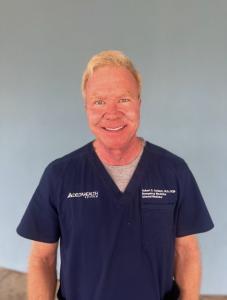Sudden Cardiac Arrest: Dr. Robert Corkern’s Lifesaving Approach to Immediate Care
Sudden Cardiac Arrest: Dr. Robert Corkern’s Lifesaving Approach to Immediate Care
Blog Article

Unexpected cardiac arrest (SCA) is just a medical disaster that could strike without warning, often leading to death or even treated immediately. Dr Robert Corkern, a famous cardiovascular specialist, offers a clear and actionable information for answering unexpected cardiac arrest. Whenever a person's heart suddenly prevents beating, quick and efficient action is a must to truly save their life. Dr. Corkern's approach centers on quick care, including realizing the signs of SCA, calling for emergency aid, performing CPR, and using an Computerized Additional Defibrillator (AED).
Recognizing Quick Cardiac Arrest
Dr. Corkern explains that realizing sudden cardiac charge may be the first faltering step in giving immediate care. Unlike a heart attack, which might present with chest pain or discomfort, unexpected cardiac arrest occurs once the heart suddenly prevents defeating due to an electrical malfunction. The individual might fall, lose mind, and stop breathing or display abnormal breathing, such as for instance gasping. It's essential to see that in the event of SCA, the patient may be seemingly unresponsive and don't have any pulse. Quick activity must prevent critical consequences.
Demand Emergency Support Instantly
Time is of the fact when working with sudden cardiac arrest. Dr. Corkern stresses the significance of contacting emergency services as soon as possible. Fast medical treatment is essential to revive the heart's typical rhythm. Dialing 911 or the local disaster number signals trained experts who can offer advanced treatment, such as for example intubation, treatment, or defibrillation, that could be required to strengthen the individual's condition. While waiting for medical responders to reach, every energy to fix the patient must continue without delay.
Conduct High-Quality CPR
Dr. Corkern emphasizes that performing high-quality CPR (cardiopulmonary resuscitation) is a must in maintaining body movement to mental performance and crucial organs all through sudden cardiac arrest. If the person is unresponsive and perhaps not breathing, start CPR immediately. Dr. Corkern recommends chest compressions at a rate of 100-120 each minute, pressing difficult and rapidly at a level of at the least two inches. After each 30 compressions, offer two rescue breaths, ensuring that the airway is open. If you're maybe not trained in offering recovery breaths, performing hands-only CPR (continuous chest compressions) remains extremely effective.
Use an Automated Outside Defibrillator (AED)
An Computerized Outside Defibrillator (AED) is a lightweight product that may deliver an electric distress to the center to revive its regular rhythm. Dr. Corkern worries that the AED is among the most crucial tools for treating unexpected cardiac arrest. If one can be acquired, it must be applied when possible. AEDs are made to be user-friendly, with step-by-step voice recommendations that guide the user through the process. When the AED is attached with the individual, it'll analyze their center beat and, if required, deliver a shock to the center to potentially restart standard electrical activity.
Continue steadily to Monitor the Person's Condition
Despite initiating CPR and using an AED, Dr. Corkern suggests that the individuals condition be strongly monitored till support arrives. Keep on performing CPR if required, and keep an eye on the breathing, heart, and overall response. If the individual regains mind and starts breathing commonly, put them in the healing position (lying on the area using their head fished back) to make sure their airway remains clear. If their heart stops again, keep on CPR until medical responders appear or anyone shows signs of life.
6. Follow-Up and Post-Emergency Care
After emergency responders arrive, they will dominate and offer advanced treatment, such as advanced airway management, intravenous medicines, and stabilization. Dr. Corkern proposes that those that endure a sudden cardiac charge occasion obtain a complete medical evaluation to find out the explanation for the arrest and start treatment to avoid future incidents. This could contain life style improvements, drugs, or, in some instances, the implantation of a defibrillator to regulate heart rhythms.
In conclusion, unexpected cardiac charge is really a medical emergency that requires immediate and decisive action. Dr Robert Corkern Mississippi's method emphasizes realizing the signs of SCA, contacting disaster services, doing CPR, using an AED, and continuous to monitor the individuals condition. By following these measures, you are able to raise the chances of emergency in a cardiac emergency, and perhaps save your self a life. Dr. Corkern's assistance is an essential reference in ensuring a fast, effective a reaction to sudden cardiac arrest.
Report this page